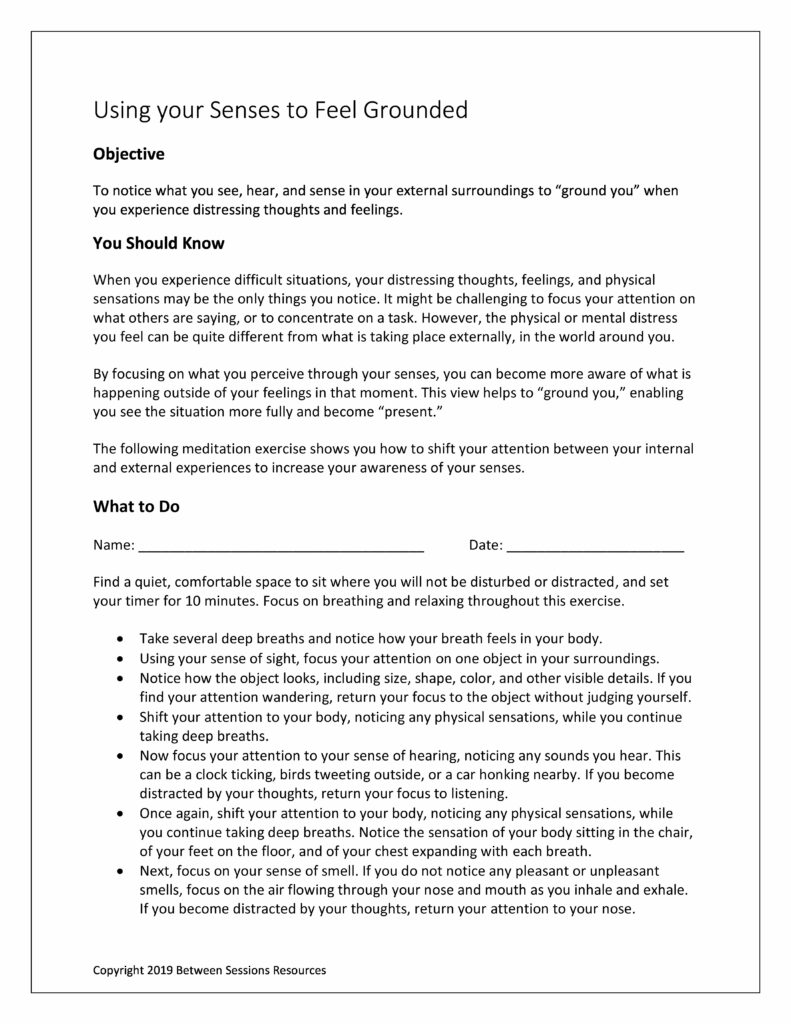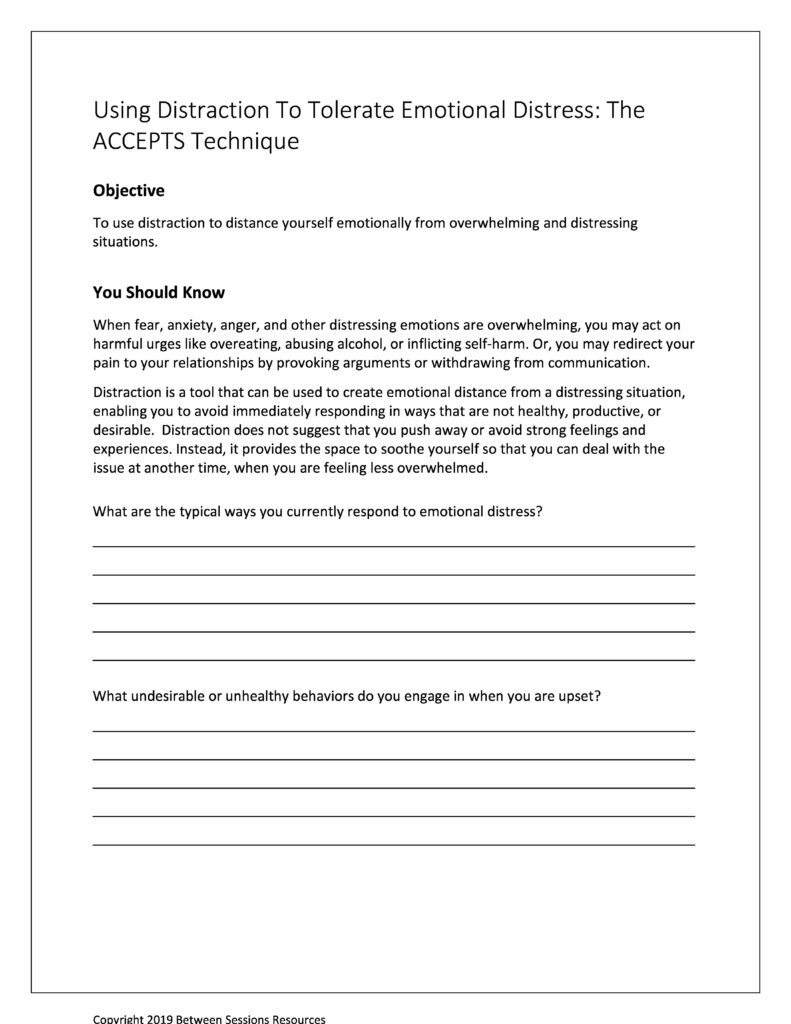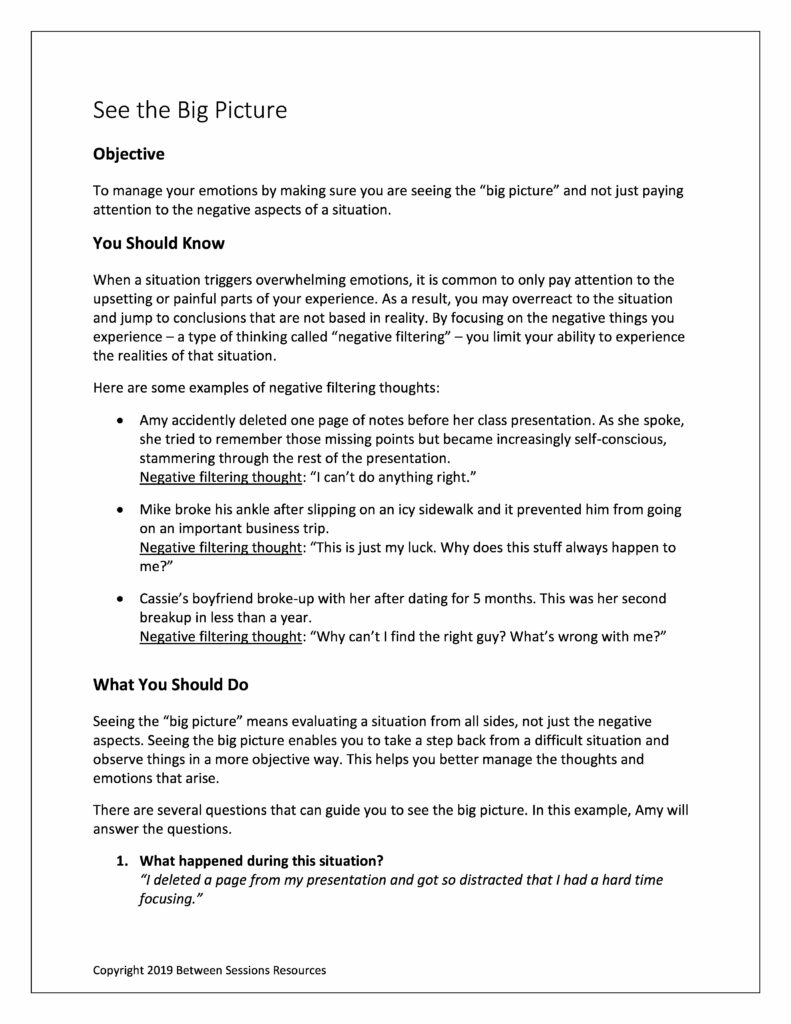This worksheet is designed to help people deal with overwhelming emotions, depersonalization, and derealization. It directs people to pay attention to sensory input as a way of becoming grounded and feeling in control. (Bipolar Disorder, grounding, emotional regulation, DBT, 1119)
This worksheet can be used by people to help cope with overwhelming emotions. It describes the ACCEPTS method, a DBT technique, to help people experiment with various ways to distract themselves from upsetting and overwhelming emotions. (DBT, distress tolerance, emotions, 1119)
This worksheet teaches the importance of values and on basing goals and intentions on those values. It asks clients to identify their core values, think about goals and steps to live those values, and then rehearse them. (ACT, DBT, 1119)
This worksheet is designed to help people identify their unhealthy and self-defeating behaviors and substitute them with positive behaviors. The intent is to help people develop a positive cycle of positive behaviors and emotions. (DBT, behavioral therapy, Bi-Polar Disorder, 1119)
This worksheet is designed to help people regulate emotions by seeing the big picture rather than on just focusing on the negative aspects of a situation. The exercise is designed to help people evaluate problems accurately and objectively. (DBT, emotional regulation, 1019)
This worksheet is designed to help people who are feeling hopeless and even suicidal avoid using alcohol or drugs to self-medicate. It asks them to look at situations that trigger their urge to self-medicate and to contact a supportive person to help them through this difficult time. (suicide prevention, depression, alcohol abuse, 0919)
This worksheet is designed to stimulate coping mechanisms in people who feel hopeless, even to the point of being suicidal. The intention of the worksheet is to encourage people to develop a problem-solving attitude. The worksheet asks people to try out five popular problem-solving strategies and then see how often they can be used on a day-to-day basis. (problem-solving, executive functioning skills, coping skills, suicide, depression, 0919)
This worksheet is designed to be part of a suicide prevention plan which should reduce risk and increase protective factors. (0819)
These cards remind people to think about others and look for opportunities for random acts of kindness. (empathy, social connection, 0819)
This worksheet is designed to help you identify the stress in your life and take steps to cope with it. (prevention, depression, relationships, 0819)










